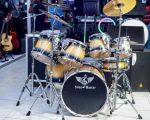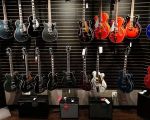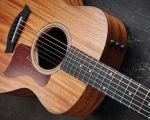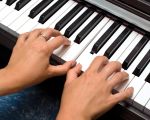What Does the Bible Say About Musical Instruments?
- 1. The Importance of Music in Worship
- 2. Biblical References to Musical Instruments
- 3. The Modern Christian View on Musical Instruments
- 4. Musical Instruments in the Old Testament
- 5. The Role of Instruments in Church Worship
1. The Importance of Music in Worship
Music has been a part of human culture for centuries, and its presence in religious practices, especially Christianity, is undeniable. The Bible speaks extensively about the role of music in worship. From the early times of the Old Testament, music was seen as an essential part of worship, celebration, and even warfare. Growing up in a Christian home, I was always surrounded by hymns and songs during church services, but I never fully realized how deeply ingrained music is in the Bible until I started studying its significance.
Throughout the Old and New Testaments, music is used to praise God, express joy, and communicate the power of the divine. In the book of Psalms, we see numerous references to musical instruments in the context of praising God. Music is seen as a way to connect with God, evoke spiritual emotions, and foster a sense of unity in the congregation. It’s no surprise that music remains such a vital part of Christian worship today.
2. Biblical References to Musical Instruments
The Bible mentions a wide range of musical instruments used for worship and praise. In the Old Testament, instruments like the trumpet, harp, lyre, and tambourine were commonly used in religious ceremonies. One of the most famous examples is found in the book of 2 Samuel, where King David played the harp to soothe King Saul’s troubled spirit. This act not only highlights the emotional and spiritual power of music but also shows how music was integrated into both personal and communal worship practices.
In the book of Psalms, musical instruments are frequently mentioned as tools for worship. Psalm 150, for example, explicitly calls for the use of various instruments, including the trumpet, harp, tambourine, and strings, to praise God: "Praise him with the sounding of the trumpet, praise him with the harp and lyre" (Psalm 150:3-4). These references demonstrate that musical instruments were integral to the worship experience and were considered a means of honoring God.
3. The Modern Christian View on Musical Instruments
Today, many Christian denominations embrace the use of musical instruments in worship, recognizing their role in enhancing the spiritual atmosphere of church services. However, not all Christian communities share this view. Some conservative denominations, such as certain branches of the Church of Christ, prefer a cappella singing and refrain from using instruments in worship, citing a lack of direct biblical command for their use.
On the other hand, many churches incorporate a wide range of instruments, from traditional organs and pianos to modern electric guitars and drums. These instruments help create a lively and engaging worship environment, enabling the congregation to connect with the message of the service through song. Personally, I’ve always found that a well-played guitar or piano can deeply enrich the worship experience, making it more meaningful and heartfelt.
4. Musical Instruments in the Old Testament
The Old Testament is rich with references to musical instruments, especially in the context of temple worship. In 1 Chronicles 15, King David organizes a group of Levites to bring the Ark of the Covenant into Jerusalem, accompanied by musical instruments. He specifically commands the use of “harps, lyres, and cymbals” to accompany the procession (1 Chronicles 15:16). This example illustrates the importance of music in sacred rituals and how it was used to honor God in both joyous and solemn occasions.
The Old Testament also presents the use of instruments in the celebration of victories. For instance, when the Israelites crossed the Red Sea, they sang and played instruments in praise of God’s deliverance. These moments emphasize that music was not just a form of personal expression, but also a communal activity that reflected the collective relationship with God.
5. The Role of Instruments in Church Worship
In modern church worship, instruments continue to play an essential role. They not only support congregational singing but also set the tone for different parts of the service. Whether it’s a quiet, reflective piano piece during communion or a lively drumbeat at the beginning of a worship service, instruments help guide the emotional flow of the service.
Moreover, musical instruments allow for greater creativity in worship. Contemporary worship bands often incorporate various instruments, like electric guitars, keyboards, and drums, to create a dynamic and engaging atmosphere. This modern approach to worship music is a departure from the more traditional hymns and organ music, but it serves to reach new generations of worshipers and connect them with the message of the gospel in a way that resonates with their culture.
For many, the use of instruments in church is a natural way to express the joy and reverence that come with faith. Whether it’s through a slow, reverent hymn or an upbeat, celebratory song, music, and the instruments that create it, remain an integral part of the worship experience in Christianity.








